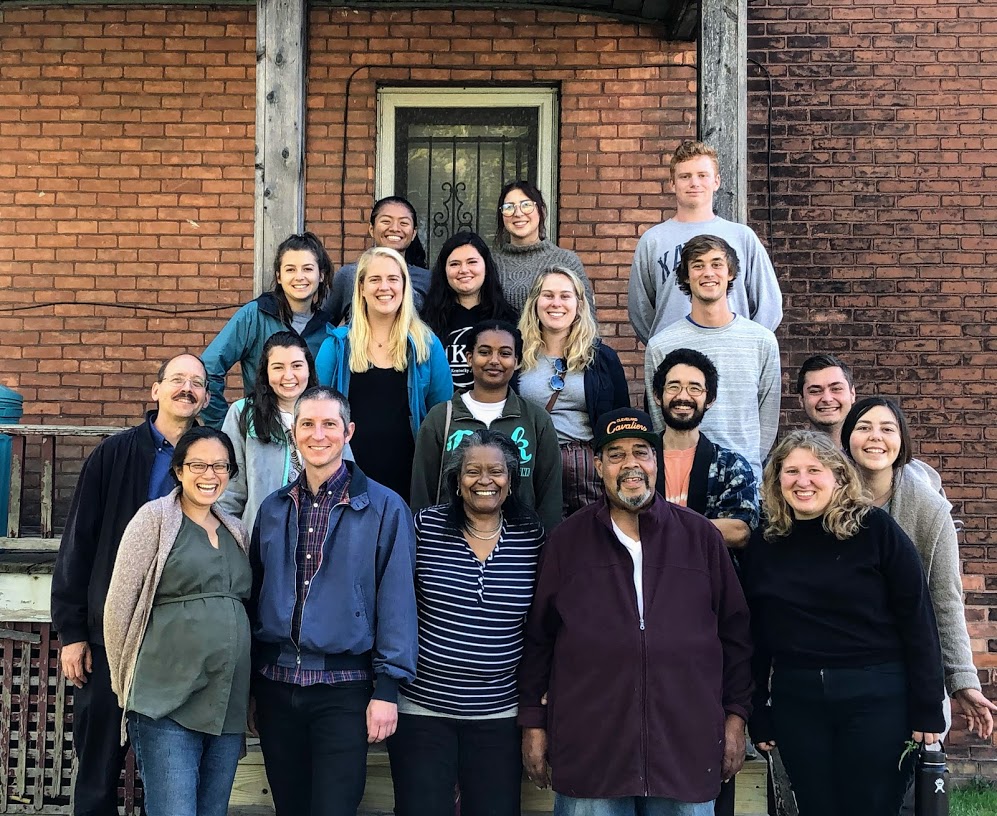THEO 345: The Challenge of Peace and Engaging With Others

Faculty: John Sniegocki
The following is a reflection shared by Dr. John Sniegocki:
In the Fall 2020 semester, students in two sections of “The Challenge of Peace” course (THEO 345) and I, along with Nathan Wendt, SJ, (of the Eigel Center), participated in a virtual immersion experience with community partners from Detroit. Over two weekends in late September and late October, we participated in ten hours of sessions via Zoom.
The Challenge of Peace course is the required seminar for the Peace & Justice Studies minor, and our immersion experience complemented the minor very well. Issues that we explored in the immersion included racism, economic inequality, nonviolent social activism, contemplative spirituality, simple living, ecology, community organizing, urban farming, and others.
Our main partners for the experience were Marcia Lee and Ian (‘en’) Sawyer, a young married couple who are the founders of Taproot Sanctuary, an urban retreat/community center based in their home. Marcia and en facilitated the experience, and were joined by an array of other guest speakers. These guests included a retired pastor with a long history of involvement in nonviolent social activism in Detroit, a young woman who shared her experiences of simple lifestyle, gardening, and community-building, a teacher and student from the James and Grace Lee Boggs school (an alternative public school with emphases on restorative justice, student empowerment, and community action), and the co-founder of an urban farming/community-building project called “Freedom Freedom.”
“Detroit is not an example of a city that has found all the solutions,” Marcia and en shared, “but it is an example of many people engaging and imagining a better way of doing things, a better way of living together and visioning what can be.”
Marcia and en led us in a variety of contemplative and envisioning processes, and asked us each to commit to engaging in some constructive practices in the month between our sessions. Many students made commitments to explore meditation/mindfulness practices or to engage in projects of gardening or caring for indoor plants. Others made commitments to engage in dialogue with people whose views differed from their own.
While students in the virtual experience expressed regret that they could not visit Detroit in person, (the previous fall another section of The Challenge of Peace had gone in person and many described it as the highlight of the course), they nonetheless found it to be a very valuable experience. Sharing about the experience in a reflection paper, Payton Wood, a sophomore Environmental Science major, wrote:
“I found the Detroit immersion experience to be very engaging and informative…I was inspired by the stories we heard that showed how the people of Detroit have been able to work together and build a community.”
My students and I are grateful to Marcia, en, and their friends for sharing these inspiring visions and examples with us.